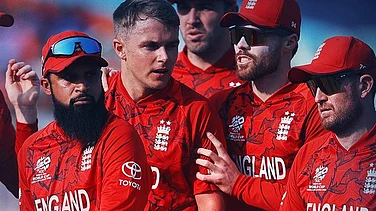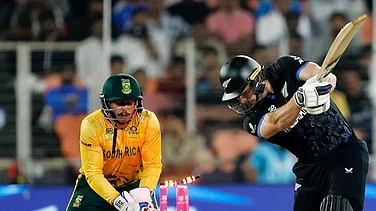Time was when if you said “batter” you were seen as rustic. The people who knew English and cricket said “batsman”.
In certain cultures such as Australia, “batter” would be used informally. But even there it was not considered proper. Lisa Sthalekar, the Pune-born Australian cricketer, once used “batter” on air. She was promptly told by a colleague, “batter is for fish”.
The rules have changed now.
Today if you say “batsman” you are seen as sexist and out of tune with the times. Sexism subconsciously begins with basics like language. In a game that is played by men and women, why should a person batting be assumed male?
Therefore, in 2021, the Marylebone Cricket Club (MCC) replaced “batsman” from their ‘Laws of Cricket’ with “batters”. It sounded slangy and evoked baseball. But it was gender equal and rooted in logic.
And therefore it found support among athletes.
“You’ve got to adapt to the times and the changes around us,” says Indian badminton player Ashwini Ponappa. “The term ‘batter’ does represent a batter and not a gender specific one, which is the aim here.”
Sthalekar said, “It’s about young girls out there feeling that we’re talking to them or talking about something they can do. ‘Batsman’ may mean they switch off, they go ‘well they’re not talking about us’.”
Besides, “bowler”, “fielder”, “wicketkeeper”, “non-striker” were all gender neutral terms. Only a few like “batsman”, “nightwatchman” and “twelfth man” stood out, sounding stuffy and archaic and not inclusive at all.
Geoff Allardice, ICC CEO, said, “I don’t want any girl in the world to not feel like cricket isn’t for her because we’re using language that isn’t relatable to her. We shouldn’t underestimate the power of words."
Prior to that, ‘Man of the Match’ was another term that was abolished by cricketing establishments. In its place came ‘Player of the Match’.
Ashwini, a twice Commonwealth Games gold medallist, feels strongly about women’s issues, at the same time does not see a devil where there is none. The Red Bull endorsed player says she is happy with the way things are in her own sport, badminton.
“In badminton there’s equal pay for both men and women. And equal importance given to the men’s and women’s events,” she says. The terminology too is neutral. Players are just players and not racquetman or racquetwoman.
Even if the glossary of a sport might not be discriminatory in its own right, the way a simple word is used can also be sexist. Some commentators and players, for example, have an issue with the use of the word “girls” for teams of grown-up women. It’s seen as casual sexism, a sign of a subconscious tendency of taking women’s sports and women athletes lightly.
In 2021, Janet Fink, a women’s sports marketing expert and Associate Dean of University of Massachusetts, said on CNN that it was hard to understand how in 2021 “you could call someone who’s a world-renowned athlete a girl.”
“I mean, if you just flipped it, and you thought about a commentator talking about (a male athlete as a) boy…it’s comical,” Fink said. She felt such language has an impact on how people perceive women athletes.
The football term “man on”, used to warn a teammate that an opposition player is upon him, and the term “sportsmanship”, are some other expressions that those seeking gender equality would like to see modified.
Former cricketer Snehal Pradhan, now a columnist and a commentator, has often spoken about gender issues in cricket. She too was given the “batter is for fish” line. But she persisted. However, there was a phase when “batter” was embraced for women’s matches, but not yet in men’s. A term meant to be gender neutral was having the opposite effect, as it came to be identified with women’s cricket. Pradhan pointed this out in one of her essays.
Finally, when men’s cricket started using “batter”, she was glad. But more needs to be done, Pradhan says.
“We have, pun intended, bigger fish to fry. Changing the terminology of cricket without a change in its ground realities is cosmetic,” Pradhan wrote in Hindustan Times.
Dr Savita Aggarwal, Associate Professor at Institute of Home Economics, Delhi University, who has spent over three decades teaching Gender and Communication, expressed a similar view to Republic World.
“The ICC’s announcement of replacing the word ‘batsman’ with ‘batter’ for official usage is a welcome step,” Dr Aggarwal said. “However, using gender-neutral words is not a magic wand, the attitude of the people towards women has to change, acceptance and acknowledgement of women in significant roles, in powerful positions, has to be achieved to move closer towards eradicating gender inequality.”

























